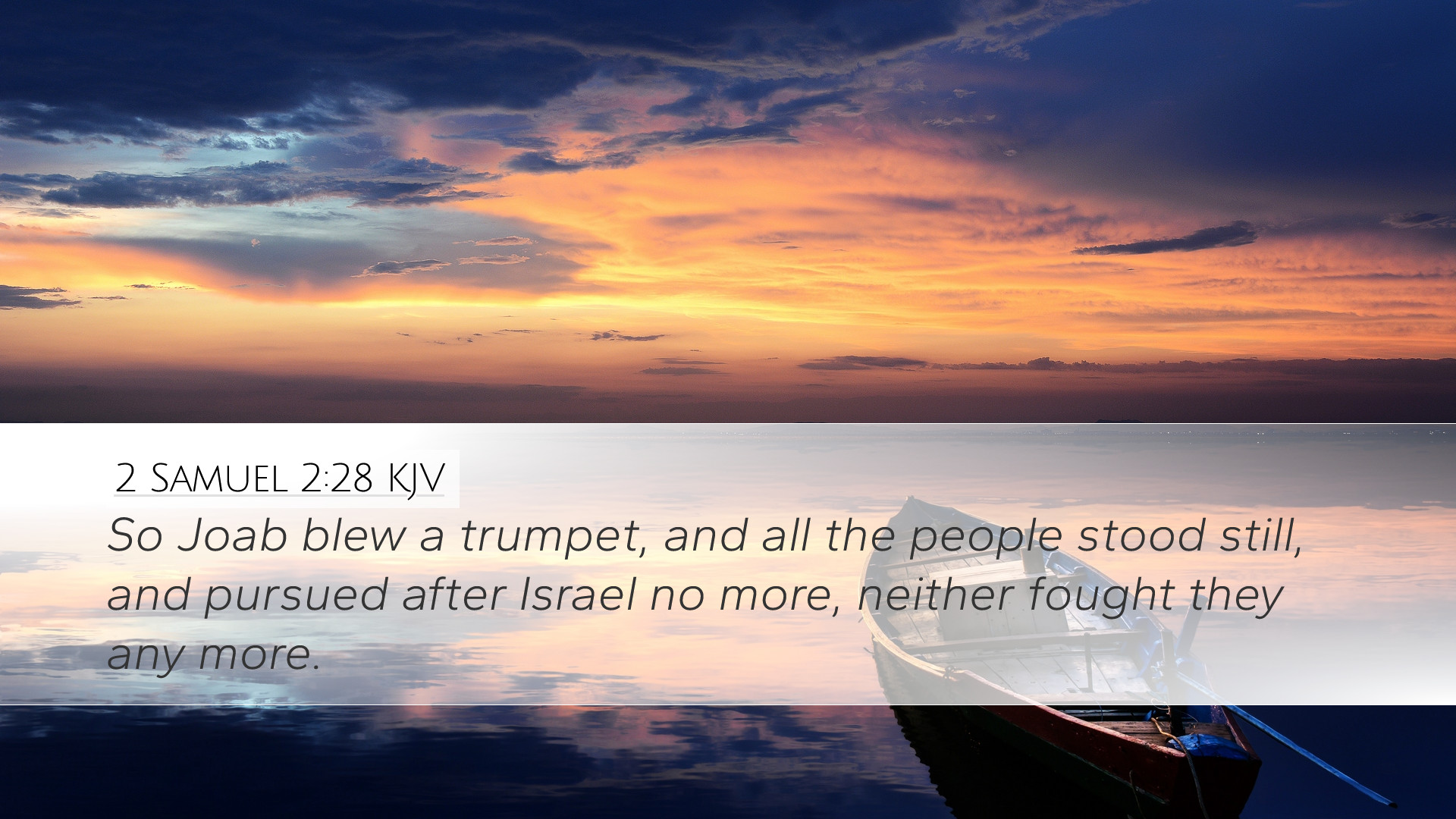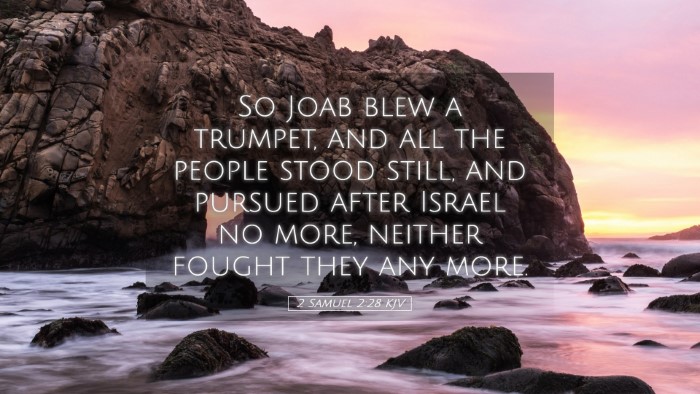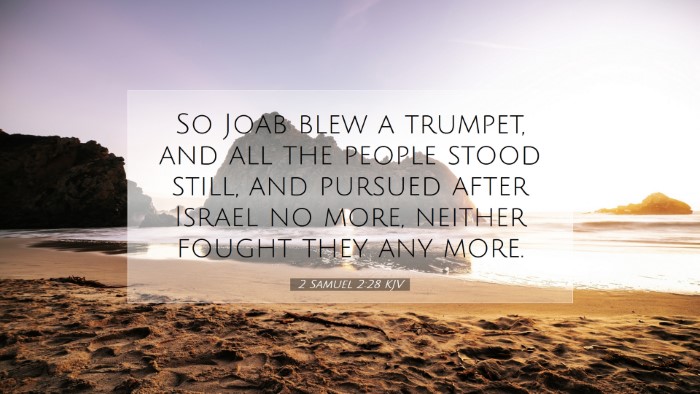Commentary on 2 Samuel 2:28
Verse Text: "And Joab blew the trumpet; and all the people stood still, and pursued after Israel no more, neither fought they any more."
Introduction
The context of 2 Samuel 2:28 is a critical moment during the struggle for the throne of Israel. David has been anointed king over Judah, but Abner, the commander of Saul's forces, has declared Ishbosheth as king over Israel. The conflict between the factions leads to a significant confrontation that reveals the shifting loyalties and the tumultuous state of Israel during this transitional period.
Exegesis of 2 Samuel 2:28
In this verse, Joab's actions are pivotal. By blowing the trumpet, he signals a cessation of hostilities, illustrating his leadership and influence over the troops. The action is not merely a call for retreat but also serves as a proclamation for peace in the face of escalating conflict.
The phrase "all the people stood still" indicates a moment of pause where the combatants reflect on their actions. This moment is crucial as it represents the power of leadership and the ability to shift the atmosphere of battle through strategic communication.
Insights from Public Domain Commentaries
Matthew Henry
Matthew Henry emphasizes Joab's role as a military leader and the significance of his decision to call for a halt in battle. He views the trumpet as a common practice in warfare for raising signals, where the blowing of the trumpet symbolizes not only a call for assembly but also a divine intervention, signifying that God may be implementing peace during chaos. Henry points out that this pivotal moment is indicative of God's providence in the leadership of David’s reign and serves to show how God can bring about peace amidst turmoil.
Albert Barnes
Albert Barnes provides a more practical perspective, underscoring the nature of Joab's authority and the acceptance thereof by the troops. He notes that the subsequent halt of pursuit signifies a turning point in leadership dynamics, where acknowledgment of a larger objective—unity under David—is paramount. Barnes articulates that Joab's decisive action may also reflect a reluctance from both sides to continue warfare that ultimately would lead to more bloodshed without a decisive outcome. This also signals the beginning of a transition toward reconciliation within Israel rather than incessant conflict.
Adam Clarke
Adam Clarke adds that the trumpet's sound also serves as a moral assertion against undue violence among the people of Israel. Clarke posits that this action leads to a consideration not just of the practicalities of warfare but also of the ethical implications. The cessation of combat forces the soldiers to reassess their motives and the consequences of their actions, serving as a precursor to the eventual unification under David’s kingship. He highlights the scriptural principle that underscores peace over strife, urging leaders to seek resolution rather than animosity.
Theological Implications
The implications of 2 Samuel 2:28 extend far beyond the historical context, reaching into various theological interpretations relevant for contemporary readers, pastors, students, and scholars. This moment represents the tension between conflict and resolution, human ambition and divine will, and the potential for leadership to pivot the course of a nation.
-
Leadership and Authority: The text illustrates the dynamic relationship between leaders and their followers. Joab's authority to call off the battle speaks to the weight of leadership and its impact on communal violence.
-
Divine Sovereignty: The cessation of hostilities reflects on God’s hand in human affairs. The transition of power from Saul’s lineage to David's illustrates a broader narrative of God's providence in guiding the nation of Israel toward its appointed king.
-
Call to Peace: Joab's trumpet call resonates with a Christian ethic of reconciliation and peace. In a world rife with conflict, the challenge remains for leaders to prioritize peace, echoing the biblical mandate to be peacemakers.
Practical Applications
The practical applications of this verse are numerous and critical in both individual and congregational settings. The cessation of conflict signifies the importance of communication and leadership in a church context. Pastors and leaders are encouraged to listen to the Spirit and exercise wisdom when navigating turbulent situations.
Additionally, the call to peace serves as a reflection point for congregations. Communities may find themselves in conflict over various issues, and Joab's actions here can guide believers to seek resolution through dialogue rather than division.
Conclusion
2 Samuel 2:28 is a significant verse that encapsulates the themes of leadership, divine providence, and the pursuit of peace within the framework of conflict. Whether in a historical, theological, or practical context, this passage calls believers to honor God through their responses to conflict and their leadership styles. By examining the biblical text through the lens of respected commentaries, we unveil deeper layers of meaning that can inform our faith communities today.


